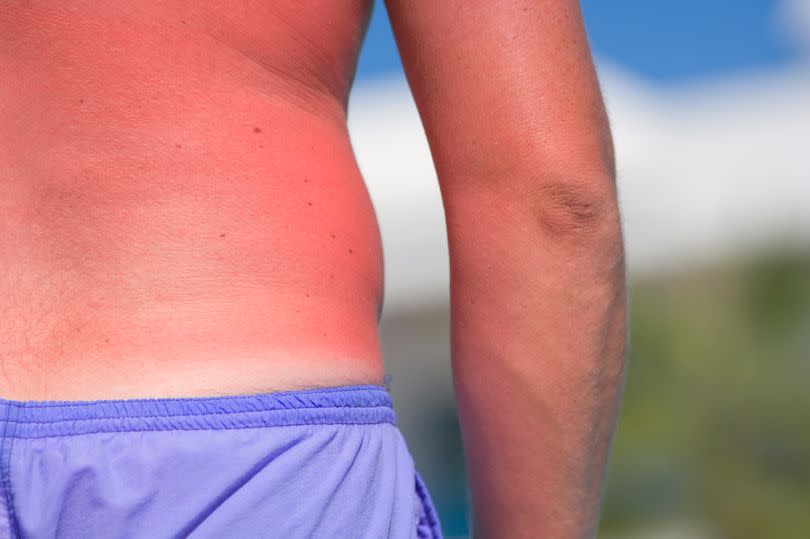One sign means your sunburn is serious and you need urgent help

People across the country are suffering after days of intense heat, with more sunny weather to come. And while millions have painful red burns on their skin thanks to the sun - some may actually need medical attention.
For most people, sunburnt skin, while dangerous in the long term, can be treated at home with aftersun and hydrating lotions, cold, wet flannels and staying out of the sun for a few days. But doctors say sometimes you will need to get help, and they have explained the symptoms.
Dermatologist Dr Jennifer Tang, told HuffingtonPost you should seek help if the burns cover a large area of your skin or you start to badly blister, adding: “When you lose such a portion of your skin barrier, you’re no longer able to regulate your temperature and you lose a lot of water. That’s when we recommend seeking care in the emergency room or a hospital.”
Dr Tang said if 30% of your skin blisters, or more, you need to see a doctor. Dermatologist Dr Kevin Boyd said serious sunburn can be accompanied by other serious conditions, such as heatstroke - as if you have been out in the sun too much you may have also suffered internal problems.
If you have a temperature of 40C or over, confusion, dehydration and a rapid pulse then get urgent help. Experts say to apply sunscreen at least every two hours, stay out of the sun between 10am and 4pm and wear protective clothing. Look for sunscreen that protects from UVA and UVB rays with an SPF of at least 30.
According to the NHS, if you have sunburn, your skin may:
feel hot to touch
feel sore or painful
flake or peel - this usually happens a few days after you get sunburn
Your skin may also blister if your sunburn is severe. If you have white skin, your skin will usually be red or pink. If you have black or brown skin, you may not notice a change in the colour of your skin.
The NHS recommends:
get out of the sun as soon as possible
cool your skin with a cool shower, bath or damp towel (take care not to let a baby or young child get too cold)
apply aftersun cream or spray
drink plenty of water to cool down and prevent dehydration
take painkillers, such as paracetamol or ibuprofen for any pain
cover sunburnt skin from direct sunlight until skin has fully healed
When to seek help, according to the NHS:
You've been out in the sun and:
your skin is blistered or swollen
your temperature is very high, or you feel hot and shivery
you feel very tired, dizzy and sick
you have a headache and muscle cramps
your baby or young child has sunburn
Severe sunburn can lead to heat exhaustion and heatstroke, which can be very serious. You can call 111 or get help from 111 online.

 Yahoo News
Yahoo News 
